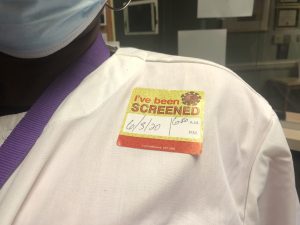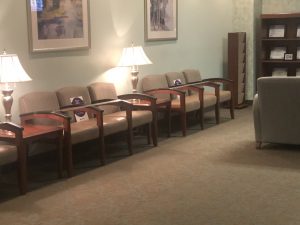CSP Team Note: This post was originally published on Novant Health’s Healthy Headlines. We thank them for allowing us to share it with you. To subscribe to Novant Health’s Healthy Headlines newsletter, click here. Click here to find a physician. Novant Health is also offering a self-guided assessment tool to help patients determine if they should seek care for COVID-19. (Note: This assessment is not a substitute for professional medical advice, diagnosis or treatment and should not be used if patients are experiencing a life-threatening emergency.)
Despite COVID-19, women over 40 reminded to get annual mammograms
When the COVID-19 pandemic brought normal life to a halt, that included a key screening that can save women’s lives: mammograms.
An X-ray of the breast is one of the best ways to find early breast cancer. These appointments, paused in the name of patient and team member safety, have now resumed at Novant Health with a new set of safety precautions in place. That means it’s time for all women 40 and older to start booking their mammograms again.
“Maybe even earlier than 40 if you have a family history of breast cancer, or you’ve gone through a risk assessment and you’re considered high risk,” said Elizabeth Currie, regional mammography manager in Charlotte. “It depends what your risk factors are.”
Breast cancer is the second most common cancer among women in the United States, according to the Centers for Disease Control and Prevention. More than 40,000 women will die from breast cancer in 2020, according to estimates. Although a breast cancer screening cannot prevent cancer, it can help find breast cancer early – when it’s easier to treat and before it’s big enough to detect on a self-exam or cause symptoms.
“We look at your imaging from year to year and are able to see changes that may be occurring,” said Currie. “We know that as we age, our chances of breast cancer tend to increase. Having those images gives us the opportunity to say, ‘Hey, that might not have been there last year. I think I might be seeing something. Let’s look at this.’ Most of the time, there’s nothing wrong, but it also gives us an opportunity to catch something in a very early stage.”
As providers work to rebook thousands of appointments, patients should expect some changes in the name of safety, including:
– At some locations, patients will be asked to wait in their car prior to an appointment.
– Answering screening questions around travel, general health and exposure to someone who tested positive for COVID-19.
– Getting a fever screening at check-in. A team member will take your temperature. Team members also answer screening questions and have their temperature taken before starting their shift to ensure patient safety.
– Requiring both patients and team members to wear masks.
– Limiting items in waiting rooms, which will look minimalist – no decorations or magazines, with a limited number of chairs placed at least 6 feet apart.
– Disinfecting dressing and exam rooms after each patient.
“Patients have noticed the changes and I think our patient satisfaction scores show that people feel very safe,” said Currie. “That’s great feedback.”
Similar safety measures are in place on the Novant Health Breast Center Mobile Mammography Unit. Only two patients are allowed in the unit at a time – with one person at the registration area and another in the exam room. Social distancing signs are outside the unit where patients wait in line.
Bottom line: don’t put off your mammogram. It can save your life. Talk to your doctor about which breast cancer screening tests are right for you, and when you should have them.
Be committed to breast health. Act now.
Novant Health
Healthy Headlines
Facebook
Instagram
Twitter
YouTube






